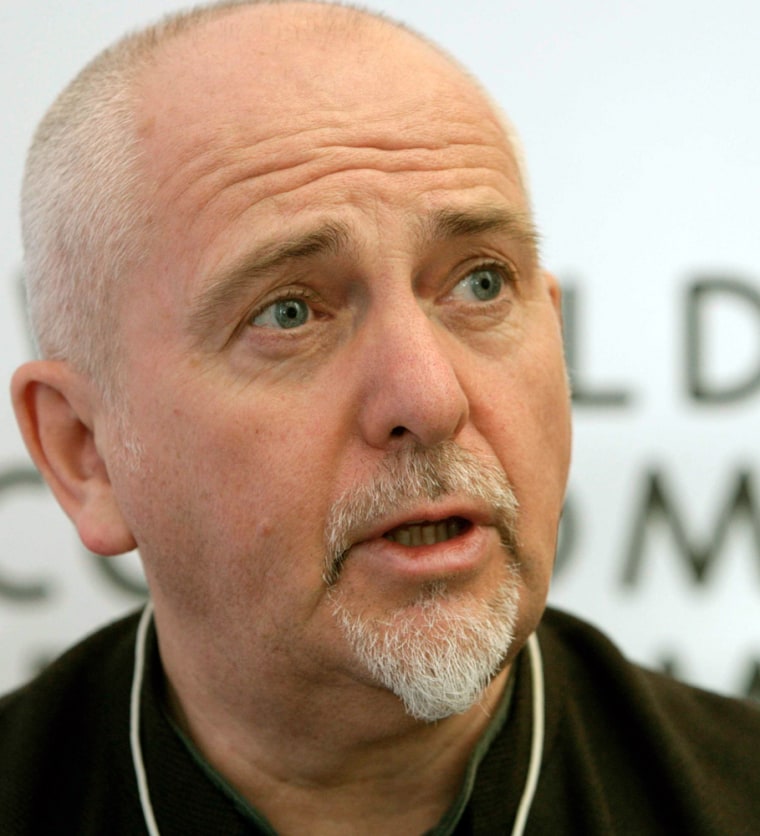Peter Gabriel would like you to see unpleasant things on the likes of YouTube — human rights abuses.
The veteran rock star, goateed and relaxed in casual gear, has been cutting a different figure among the business suits at the World Economic Forum in Davos over the past few days.
More than a quarter of a century after energizing a generation against South Africa’s apartheid system with the chill-inducing song “Biko,” he has, in his own words, been “hustling.”
Gabriel has been trying to get the businesses gathered at Davos to come up with cash or technology for Witness, a group he founded and which seeks to use video from cameras or phones to bring human rights abuse to light.
“With the telephone and Internet, anyone, anyplace can tell their story,” he told Reuters in an interview.
One of Witness’ main goals at the moment is to build a video hub where evidence of human rights abuse can be uploaded.
“You have seen the trend to citizen journalism,” Gabriel said, referring to the ability of people to record and distribute news and events rapidly with phones and cameras.
What he wants his hub to be, he said, is a kind of “YouTube for human rights.” He is in conversation with Google, owner of YouTube, about the project. YouTube and other Internet sites such as MySpace are popular online social communities where users share videos, pictures and personal views with each other.
Witness, in the meantime, is continuing with campaigns around the world with other human rights organizations to use videos to create visibility and expose issues.
Last year, for example, it produced a 27-minute video titled “Outlawed: Extraordinary Rendition, Torture and Disappearances in the ‘War on Terror.’” It aimed to expose secret detentions by the U.S. and other governments.
The group also teaches others how to use video to be used to show abuse, build campaigns or just provide evidence in courts.
Gabriel said it was the death in custody of anti-apartheid activist Stephen Biko in 1977 that triggered his commitment to fighting for human rights.
The song followed, and then a multitude of activist concerts including the 1988 Amnesty International Human Rights Now! tour with Sting, Bruce Springsteen, Tracy Chapman and Youssou N’Dour.
In 1992, he founded Witness. Gabriel said it was the video of the beating of Rodney King by Los Angeles police that showed the power of the technology.
As for now, he is hoping to put together a collection of unrecorded songs to help the Witness campaign.
